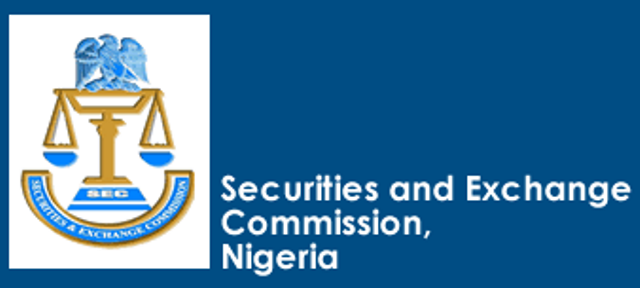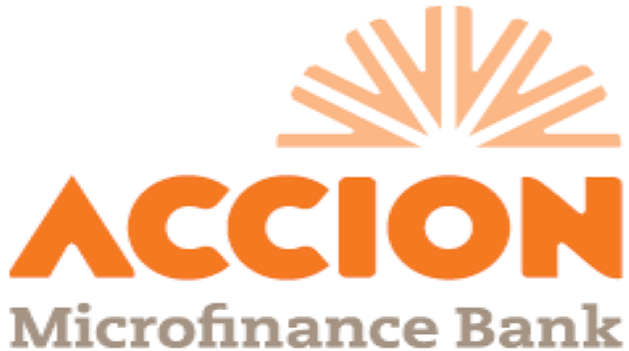E-Financial
Angst as FG Goes After N895Bn Unclaimed Dividends, Dormant Accounts’ Balances

The federal government has perfected ways to borrow funds from unclaimed dividends and dormant bank account balances unattended to for at least six years, thanks to the 2020 Finance Act, despite opposition from stakeholders.

With the coming into force of the law, which empowers the federal government to borrow from the two sources, proceeds from the two sources will stand as special credit to the federal government through the Unclaimed Funds Trust Fund contained in the Finance Act 2020, recently signed into law by President Muhammadu Buhari.
Part of the law provides that, “Any unclaimed dividend of a public limited liability company quoted on the Nigerian Stock Exchange and any unutilised amounts in a dormant bank account maintained in or by a deposit money bank, which has remained unclaimed or unutilised for a period of not less than six years from the date of declaring the dividend or domiciling the funds in a bank account, shall be transferred immediately to the trust fund.”
According to the law, the monies transferred to the trust fund will be a “special debt owed by the federal government to shareholders and dormant bank account holders.”
The law, however, exempts official bank accounts owned by the federal government, state governments or local governments or any of their ministries, departments or agencies.
The operation of the trust fund will be supervised by the Debt Management Office (DMO) and governed by a governing council chaired by the finance minister and a co-chairperson from the private sector appointed by the president.
Other members of the governing council shall include the governor of the Central Bank of Nigeria (CBN), director-general of the Securities and Exchange Commission (SEC), managing director of the National Deposit Insurance Corporation (NDIC), a representative of the registrars of companies, two representatives of the shareholders’ association, a representative of the Bankers’ Committee with the director-general of the Debt Management Office functioning as the secretary of the trust fund.
The law provides that the original owners of the money (unclaimed dividends, dormant Account) can claim it at any time.
But many shareholders and other members of the capital market community had opposed the provisions of the law, saying the government lacks powers to manage funds belonging to private sector investors.
“Dividends are private wealth of investors, either individuals or corporate entities. The idea of converting such private wealth to federal wealth negates the relevant provisions of the rights to own property as guaranteed by the 1999 Constitution. Our opinion is that S39 to the extent of its inconsistency with S44 of the 1999 Constitution (as amended) is null and void.
The law expressly states that there shall be no forceful takeover of any private movable property of any Nigerian without due and appropriate compensation and or valid court order,” shareholders under the aegis of Independent Shareholders Association of Nigeria (ISAN) had said.
According to them, dividends are only available to investors after “the company has paid a host of taxies, including companies income Tax Act (CITA), Educational Trust Fund(ETF) and other taxes are paid to the federal government, including 10 per cent withholding tax on the shareholders for every dividend declared.”
“The statute of limitation provides for expiration of debts after six years. CAMA 2020 by S432 increased the limitation to 12 years. Is government by any chance taking the position that the statute of limitation is unconstitutional?
“Government lacks the capacity to manage the funds and has demonstrated a lack of capacity to administer funds. Imagine a shareholder with an unclaimed dividend of about N1,000 to write /go to Abuja just to make a claim of the unpaid dividend. The stress and bureaucratic bottleneck is too cumbersome and will not solve the unclaimed dividend problem,” the shareholders said.
Chief Onyenwechukwu Ezeagu, chairman, Association of Securities Dealing Houses of Nigeria (ASHON), also said the federal government taking over the management of unclaimed dividends was unnecessary because capital market regulators and operators had leveraged technology to put in place initiatives that are already addressing the issue.
“Generally, the incentives for savers and capital providers in the capital market is the expectation of dividends and capital appreciation. It is therefore our considered view that the proposed legislation, if passed, will be a great disincentive to savings, long-term capital mobilisation and serious disruption of the Nigerian economy since it will take away the only expectation of investors in the market,” Ezeagu said.
E-Financial
Zenith Banks Leads as 8 Banks Suffer N156Bn Impairment Charges

Eight leading Nigerian banks collectively set aside N156 billion as impairment charges on their credit and financial assets, marking a significant financial impact amidst a challenging economic environment, in the opening quarter of 2025.

Known commonly as loan losses or credit impairments, these charges highlight the banks’ defensive measures against risks arising from inflation, naira depreciation, and tightened liquidity affecting consumers and businesses alike.
The level of impairment varied considerably across institutions, reflecting divergent risk appetites and credit management practices.
Zenith Bank led with the highest provision of N49.38 billion, an 11.8 percent reduction from the previous year’s N55.97 billion.
This decline may suggest enhanced asset quality or more rigorous loan recovery tactics.
Broken down, loans and advances contributed N35.95 billion to impairments, while investment securities and treasury bills added N7.1 billion and N2.16 billion respectively.
Despite heavy provisioning, Zenith recorded a notable 20.7 percent increase in post-tax profit, soaring from N258.34 billion to N311.83 billion.
Similar trends emerged at First HoldCo, which posted N37.25 billion in impairment (down 11.2 percent), driven mainly by loans and advances provisions of N41.23 billion.
Offsetting this were write-offs and reversals that mitigated losses.
First HoldCo’s profit, however, fell to N171.10 billion from N208.11 billion.
Access Holdings and Guaranty Trust Holding Company also demonstrated reduced impairment charges, indicating stronger credit monitoring.
Access’s net provision dropped 4.5 percent to N21.77 billion, while Guaranty Trust’s impairment stabilized near last year’s N13.42 billion figure.
Yet, Guaranty Trust’s profit plunged 43.6 percent to N258.03 billion, a striking contrast to other banks’ profit growth.
On the other hand, United Bank for Africa (UBA) faced a staggering 332.2 percent surge in impairment, from N3.28 billion to N14.18 billion—pointing to amplified credit risks possibly driven by external economic pressures.
Nonetheless, UBA recorded a 33.1 percent profit uptick to N189.84 billion.
FCMB’s impairment charge fell notably by nearly 60 percent to N9.52 billion, aided by significant recoveries of previously written-off loans, boosting its profit to N32.23 billion.
Meanwhile, Fidelity Bank and Wema Bank posted sharp rises in impairment—285.8 percent and 64.7 percent increases respectively—reflecting heightened write-downs that underscore growing risk exposure amidst portfolio expansions.
Overall, while the cumulative impairment charge diminished by 5.2 percent compared to Q1 2024, individual bank results were mixed, embodying the varied strategies and external pressures in Nigeria’s banking sector.
E-Financial
SEC Flags FF Tiffany as Ponzi Scheme

Securities and Exchange Commission (SEC) has revealed plans to commence investigation into the activities of an entity operating under FF Tiffany, allegedly running a fraudulent investment scheme that has defrauded citizens.

A statement by SEC on Tuesday in Abuja said preliminary information revealed that the scheme, which promised investors unusually high and unrealistic returns, had resulted in the loss of several billions of naira.
The SEC said it viewed the activity as a threat to investor confidence and the overall integrity of the financial system.
The commission assured the public that it was working closely with law enforcement agencies and other relevant bodies to bring everyone involved in the unlawful operation to justice.
According to SEC, those found culpable will be prosecuted in accordance with Investment and Securities Act (ISA) and regulatory provisions.
SEC reiterated its earlier warnings to the general public to desist from engaging in Ponzi or unregistered investment schemes that promised guaranteed or exaggerated returns.
”These schemes are not registered with the SEC and do not offer investor protection under the law.
“The commission is currently investigating 79 schemes and will make a statement on its findings at the conclusion of the investigation,” the SEC said.
The commission encouraged investors to conduct due diligence and verify the registration status of any investment firm or product by visiting the SEC website or contacting the commission directly through official channels.
SEC said it remained committed to its mandate of protecting investors, ensuring fair practices, and maintaining confidence in Nigeria’s capital market.
E-Financial
AccionMonie App to Empower Low-Income Households

Accion Microfinance Bank has unveiled AccionMonie, a next-generation digital financial services platform aimed at empowering individuals, micro, small, and medium enterprises (MSMEs), as well as low-income households across Nigeria.

Speaking at the official launch in Abuja, Chief Executive Officer of Accion MfB, Taiwo Joda, described the introduction of AccionMonie as a significant milestone and a testament to the bank’s culture of innovation, designed to meet the evolving needs of its customers.
“At Accion Microfinance Bank, we believe in the potential of every MSME to drive inclusive economic growth. That is why we are committed to empowering them with the financial support they need to grow, innovate, and make a lasting impact in their communities and beyond,” Joda said.
He added that the app provides instant access to essential services including loans, savings, and other forms of financial support.
According to Joda, AccionMonie is a strategic component of the bank’s “Always There to Lend You a Hand” campaign, which underscores its commitment to small business development and the economic upliftment of underserved households. The campaign positions Accion MfB as not only a financial institution but also a trusted partner in its customers’ journey to prosperity.
Highlighting the economic role of MSMEs in Nigeria, he noted that with an estimated 37 million MSMEs, the sector accounts for 86% of employment and contributes 48% to Nigeria’s Gross Domestic Product (GDP). However, these enterprises continue to face major challenges such as limited access to finance, inadequate infrastructure, and an unfavourable business environment.
Also speaking at the launch, the bank’s Chief Commercial Officer, Stephen Olalere, said the combination of AccionMonie and the bank’s expansive network of over 74 branches across 12 states will help bridge the gap in financial service delivery to small businesses.
“The platform’s user-friendly features are designed to simplify payments and offer vital support to businesses and individuals alike,” he said.
Paul Ehiagbonare, Chief Digital Officer of the bank, described the launch as a bold step toward digital leadership and financial empowerment.
“For us, AccionMonie reflects customer empowerment through digital tools and technologies. It offers a range of customer-focused features designed to promote financial inclusion,” he said.
One of its standout features is Save2Loan, which allows users to save between ₦50,000 and ₦250,000 over a 90-day period and become eligible for a loan worth twice their saved amount. This, Ehiagbonare explained, will help promote a savings culture while enhancing credit access.
In addition, customers can conveniently fund their AccionMonie accounts using any debit card, eliminating the need for physical visits or long queues in banking halls.

 Broadcasting2 days ago
Broadcasting2 days agoNigeria Week Ahead: Inflation, Oil and Naira in focus

 News2 days ago
News2 days agoEFCC: Accusations Against Our Chairman Are Baseless and Misleading

 Telecom1 day ago
Telecom1 day agoMTN Nigeria Targets $1Bn Cloud Market with Largest Modular Data Centre

 Telecom1 day ago
Telecom1 day agoNCC Introduces N10m Licence Fee for Bulk SMS Service

 E-Business1 day ago
E-Business1 day agoFirm Highlights Top Risks of Quantum Computing

 General News1 day ago
General News1 day agoAM Best Reaffirms Stable Outlook for Cyber Insurance Market

 General News1 day ago
General News1 day agoBurna Boy Distances Himself from Meme Coin, Labels Crypto as Fraud

 Telecom1 day ago
Telecom1 day agoPAT Taps Osi as CEO
























